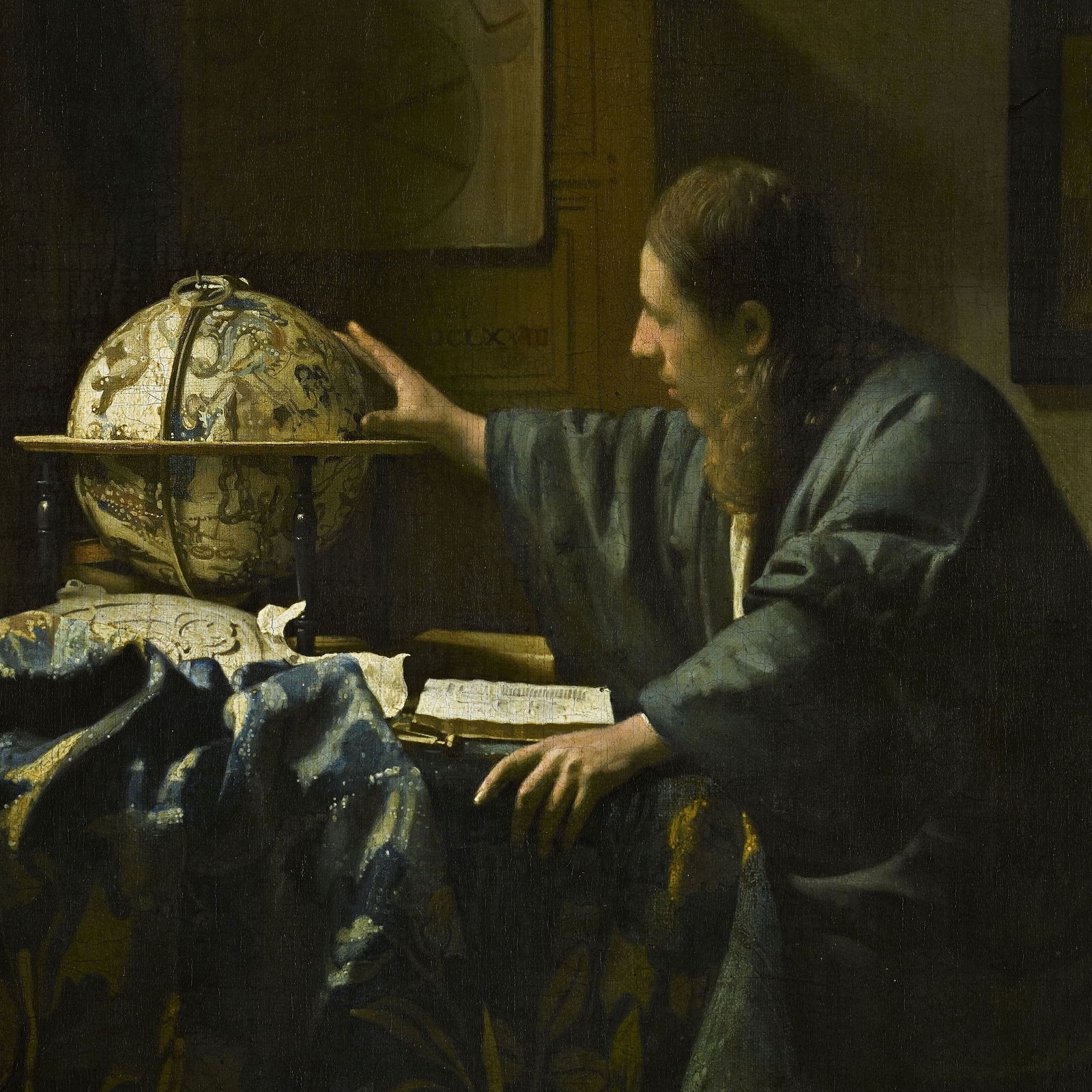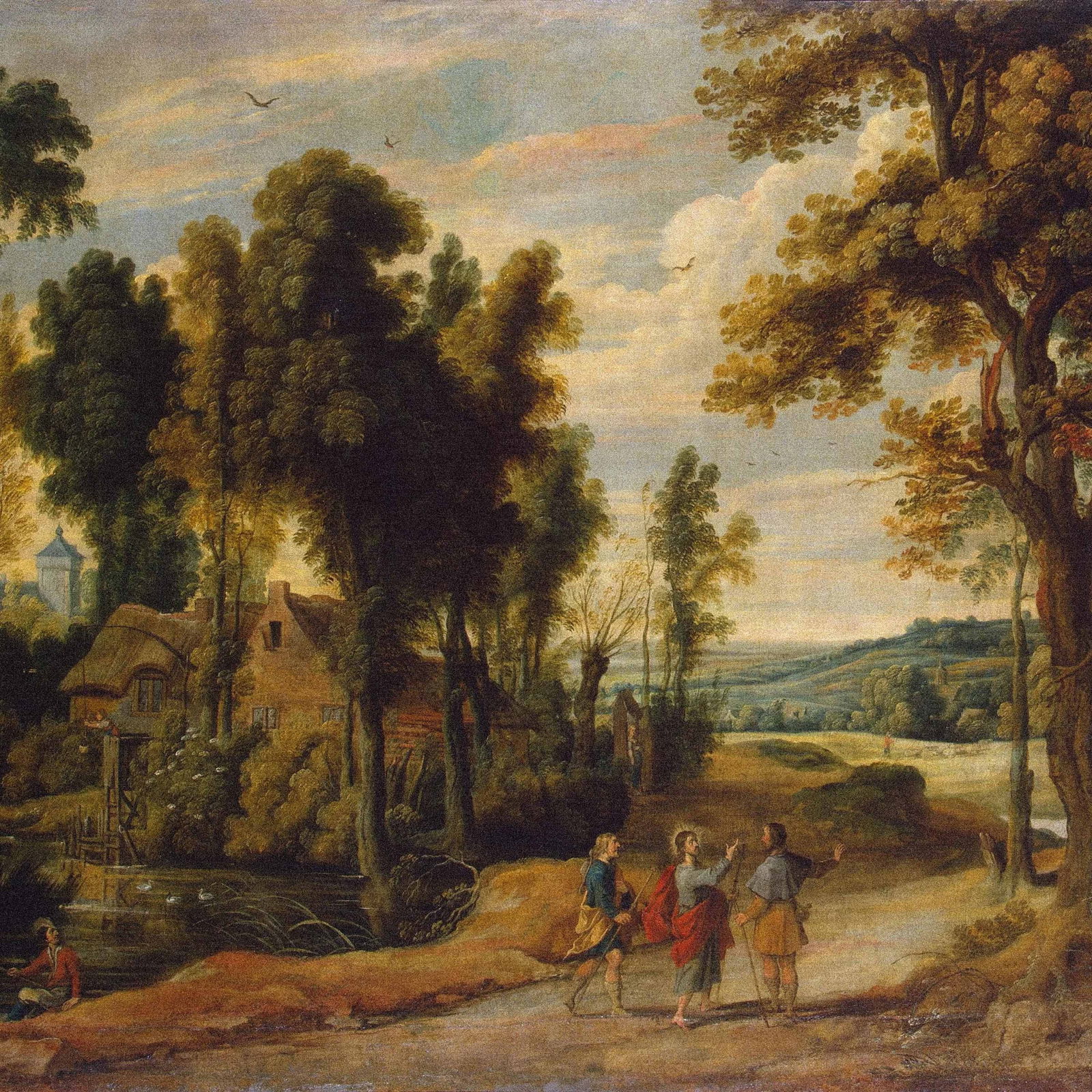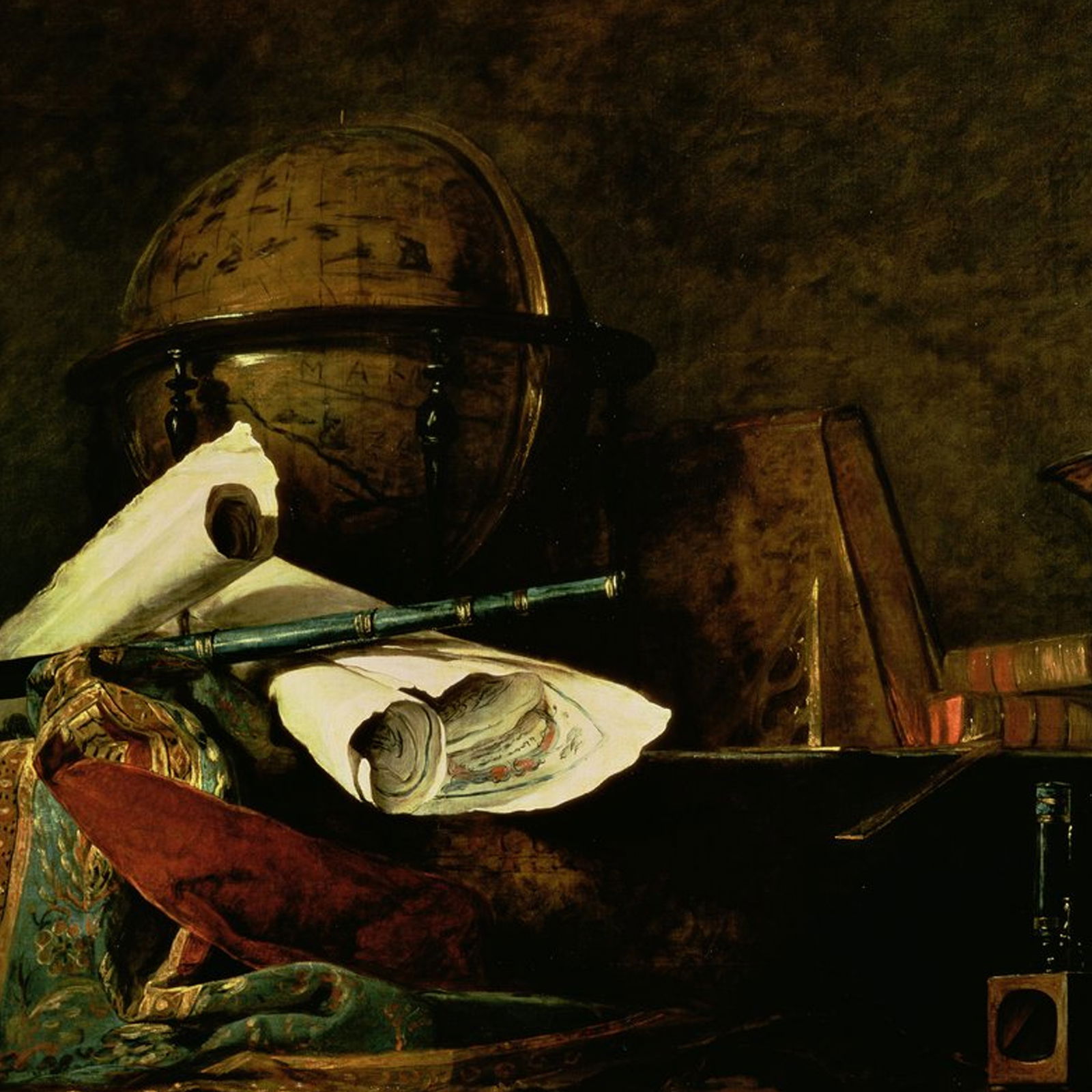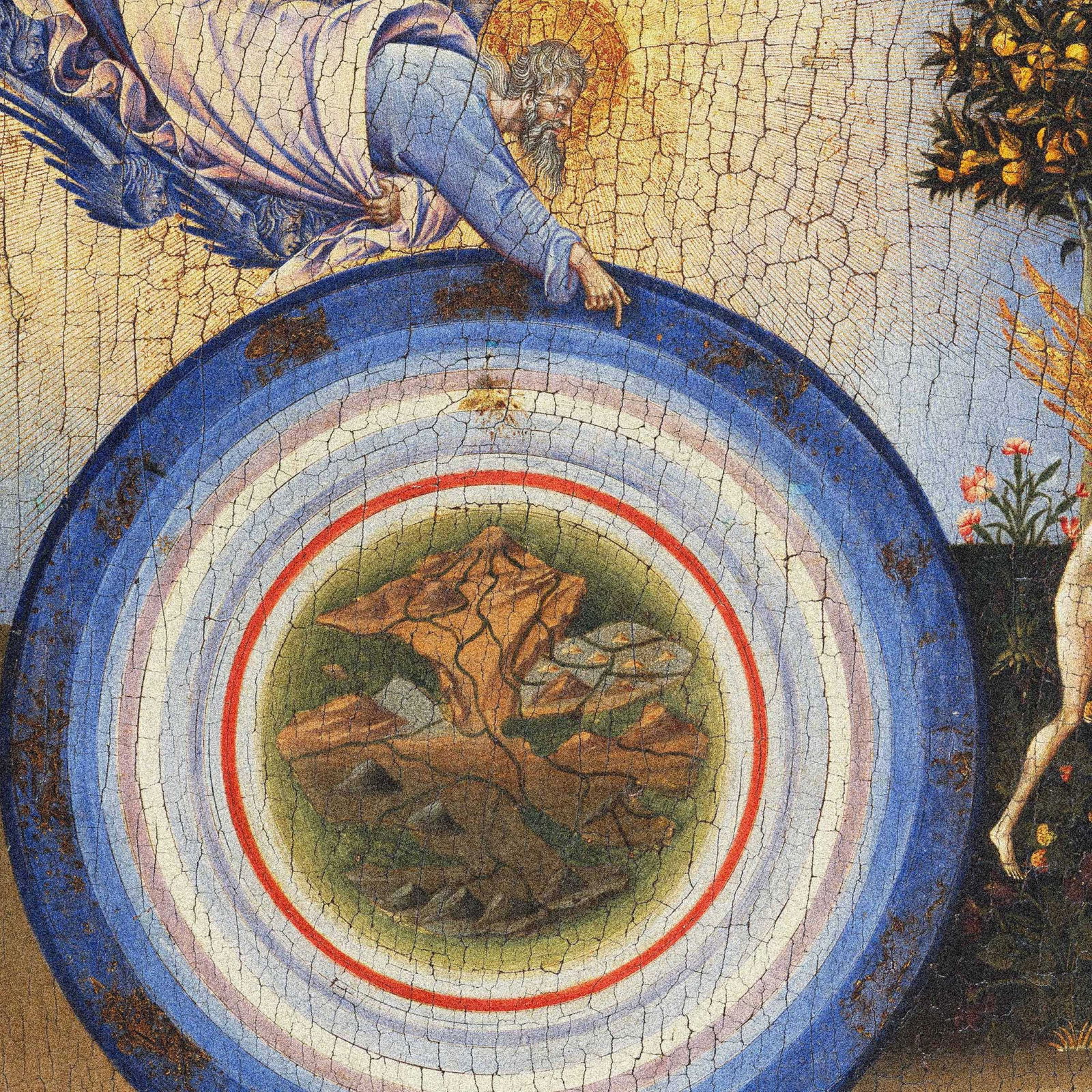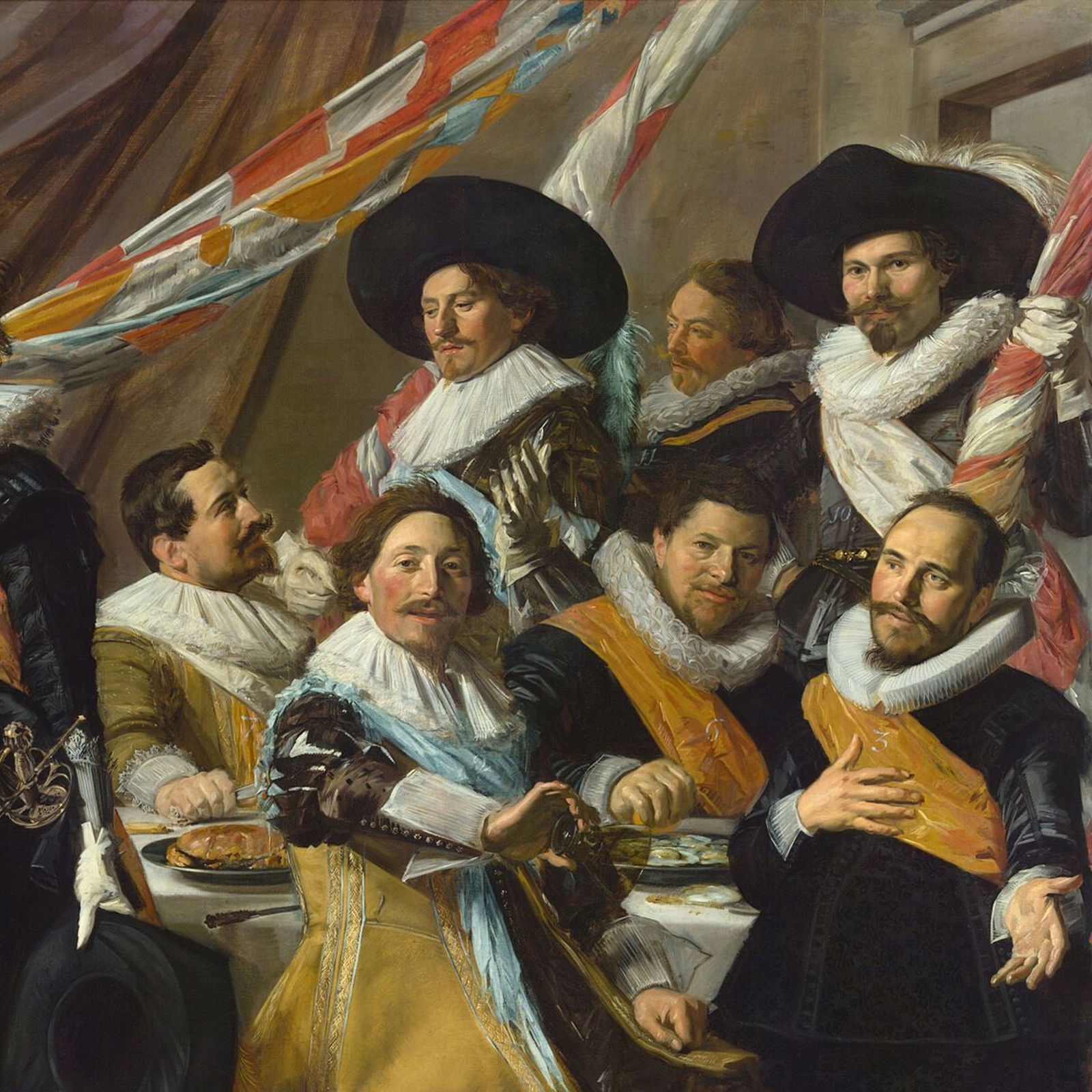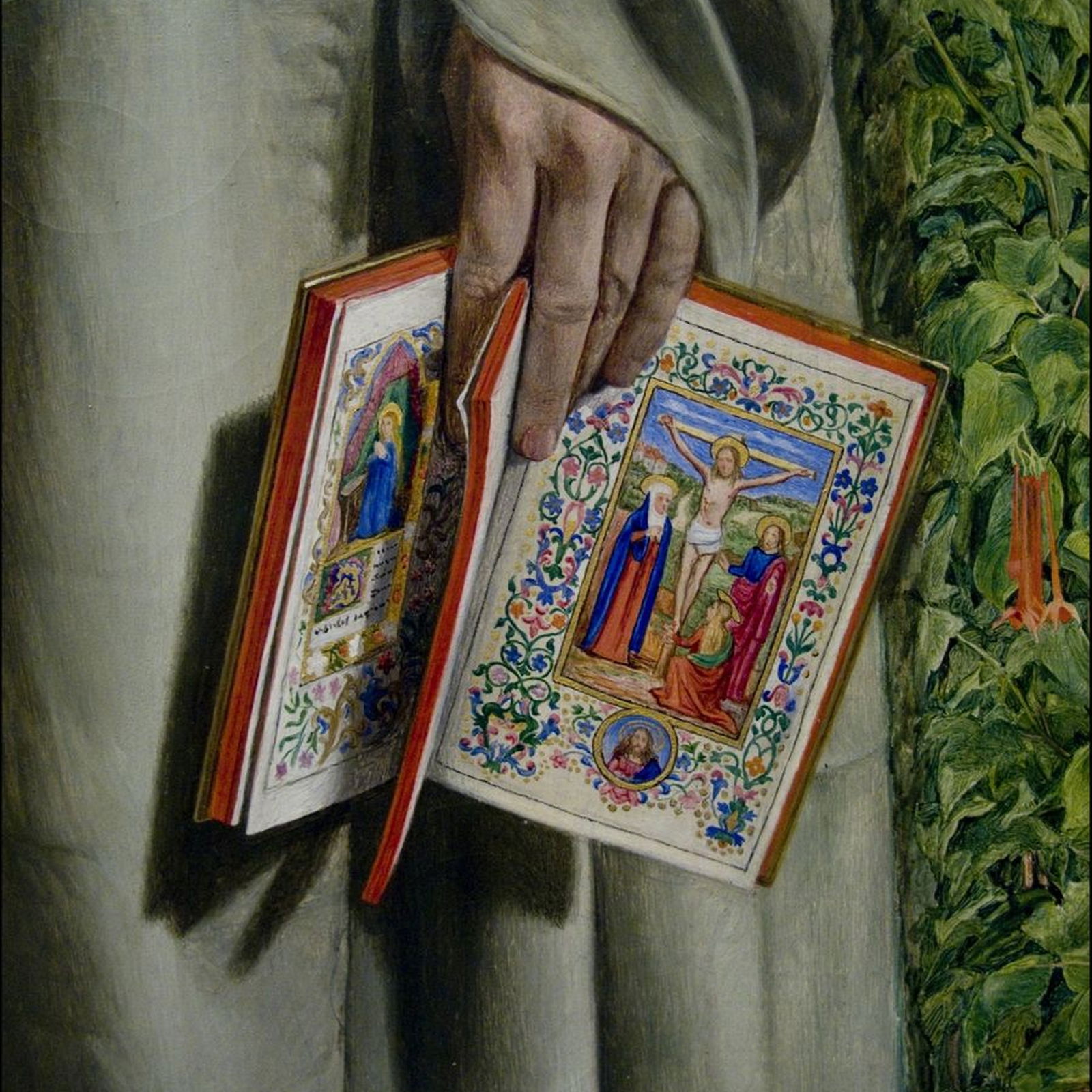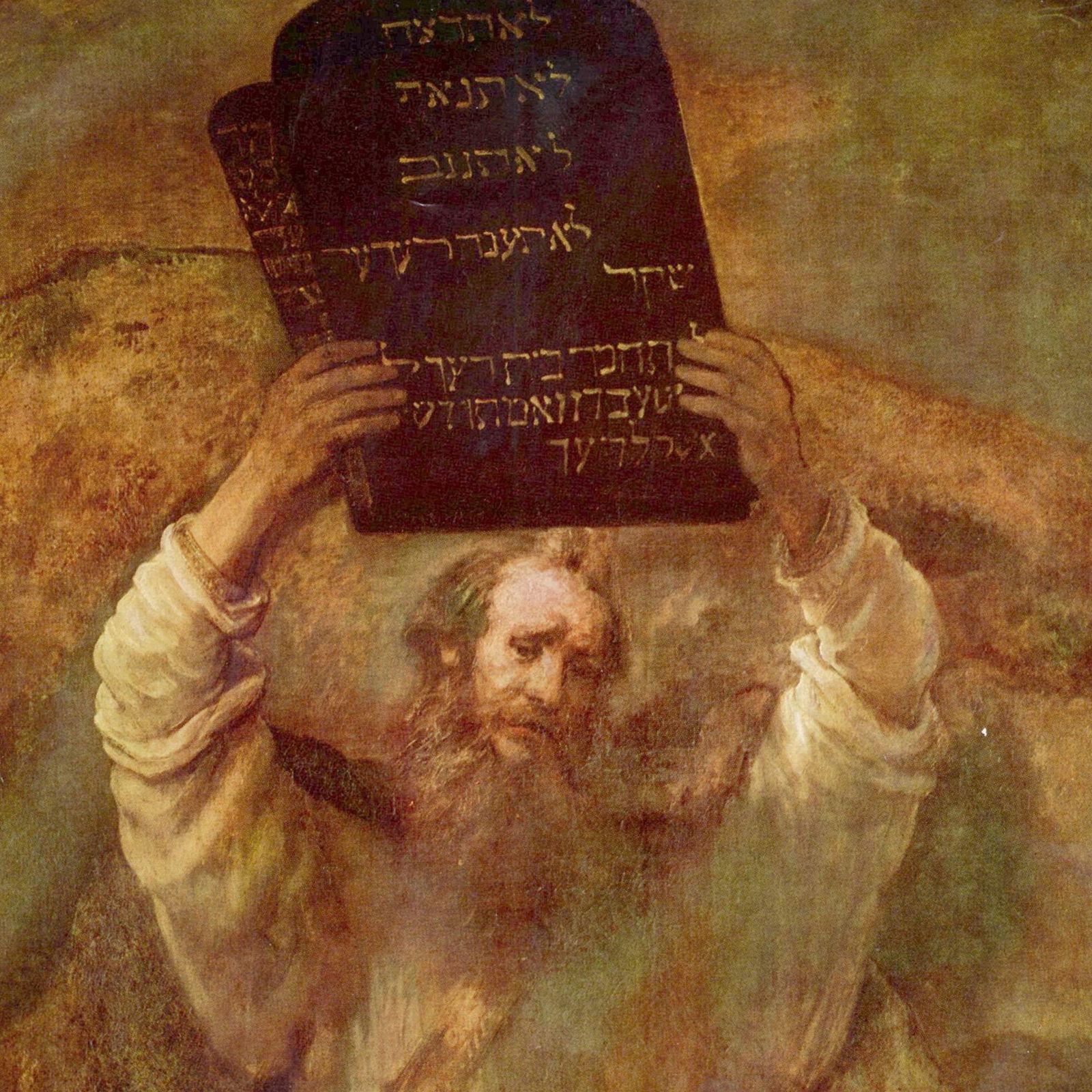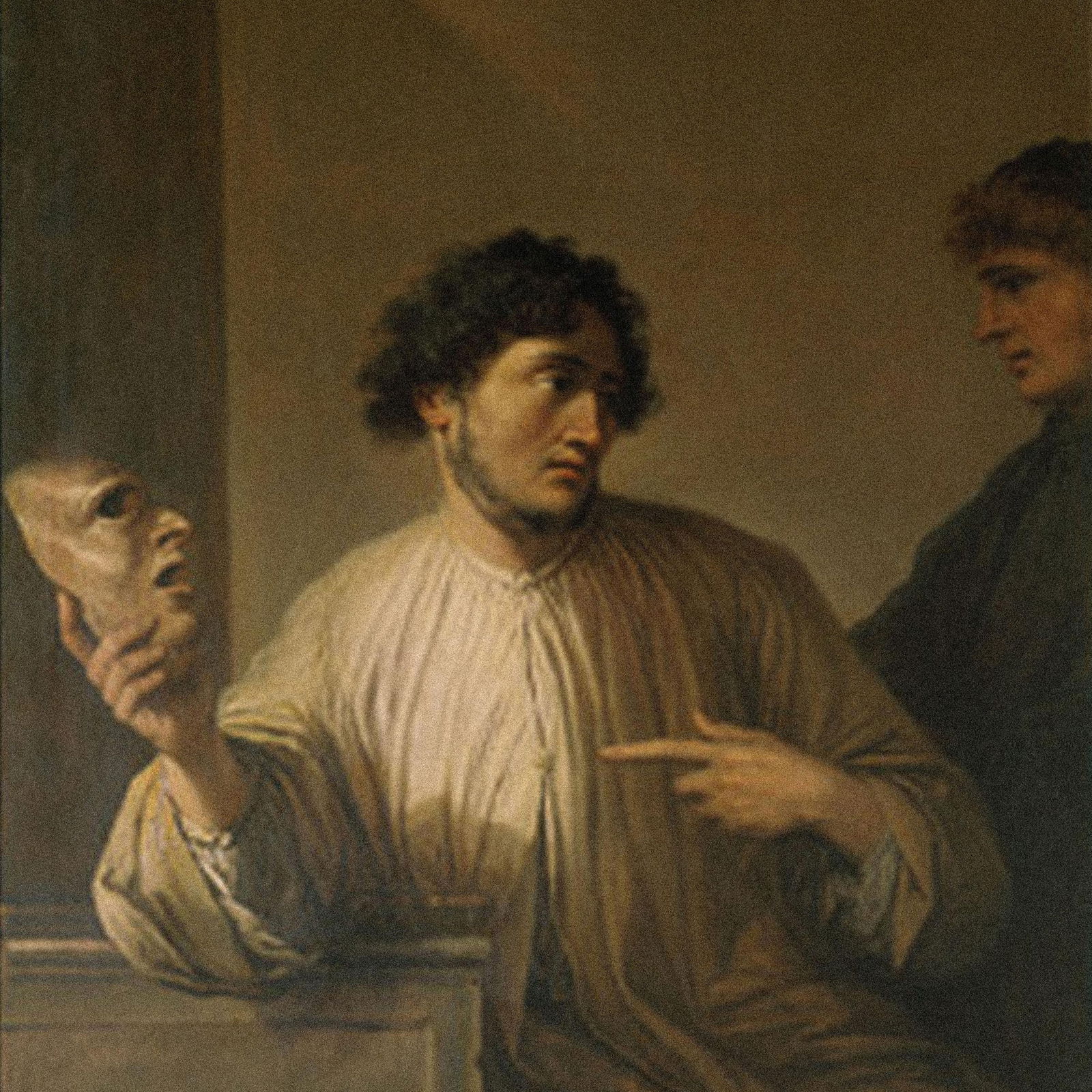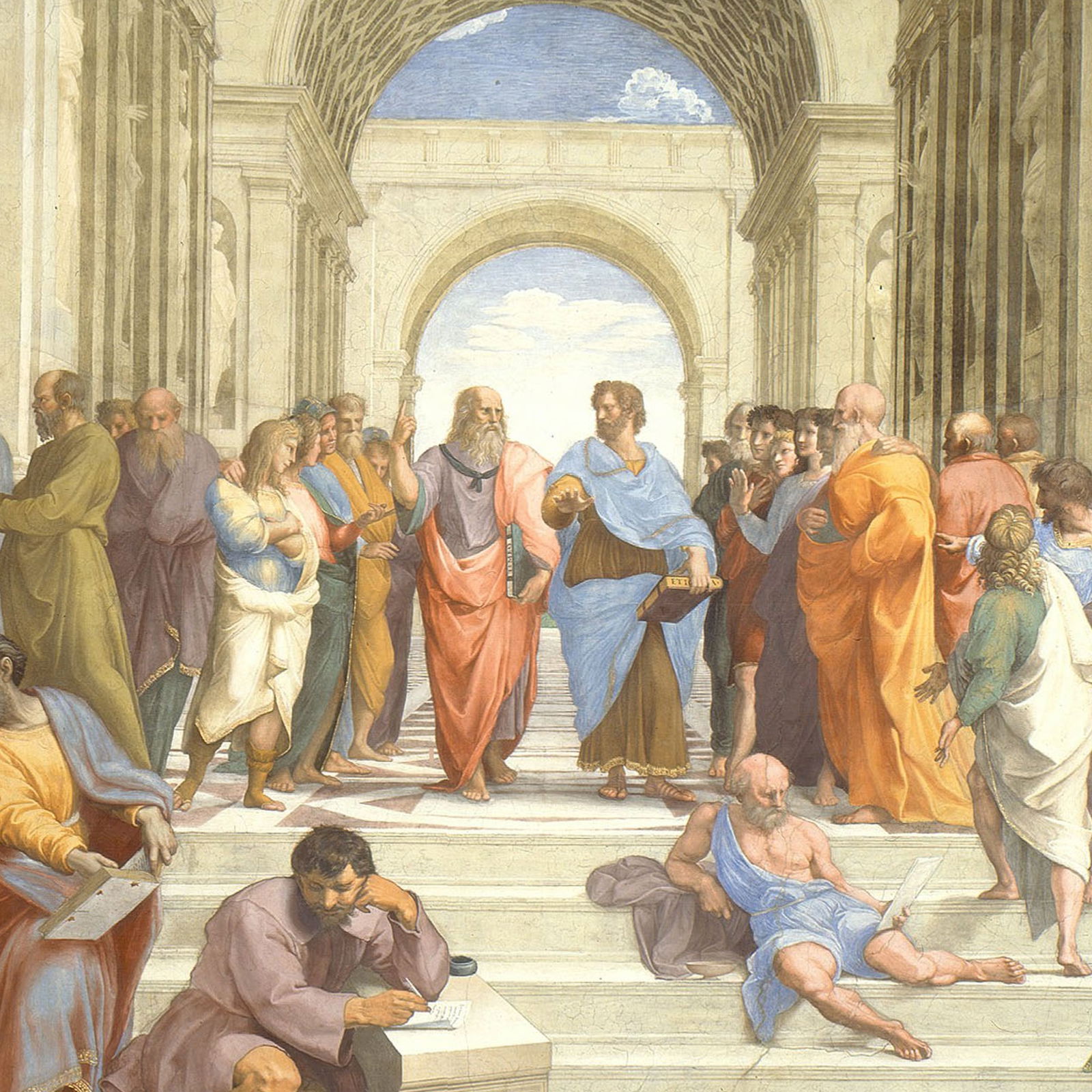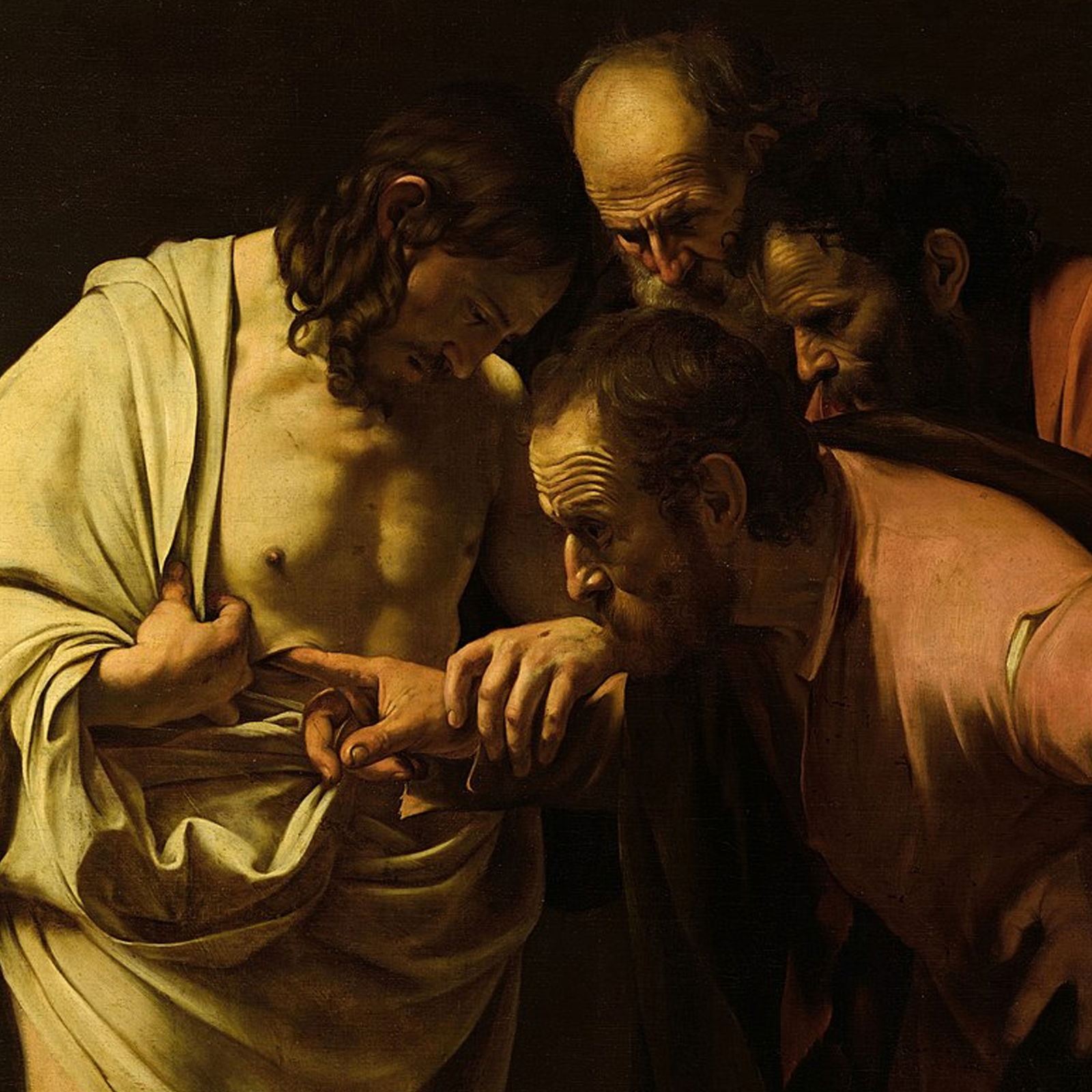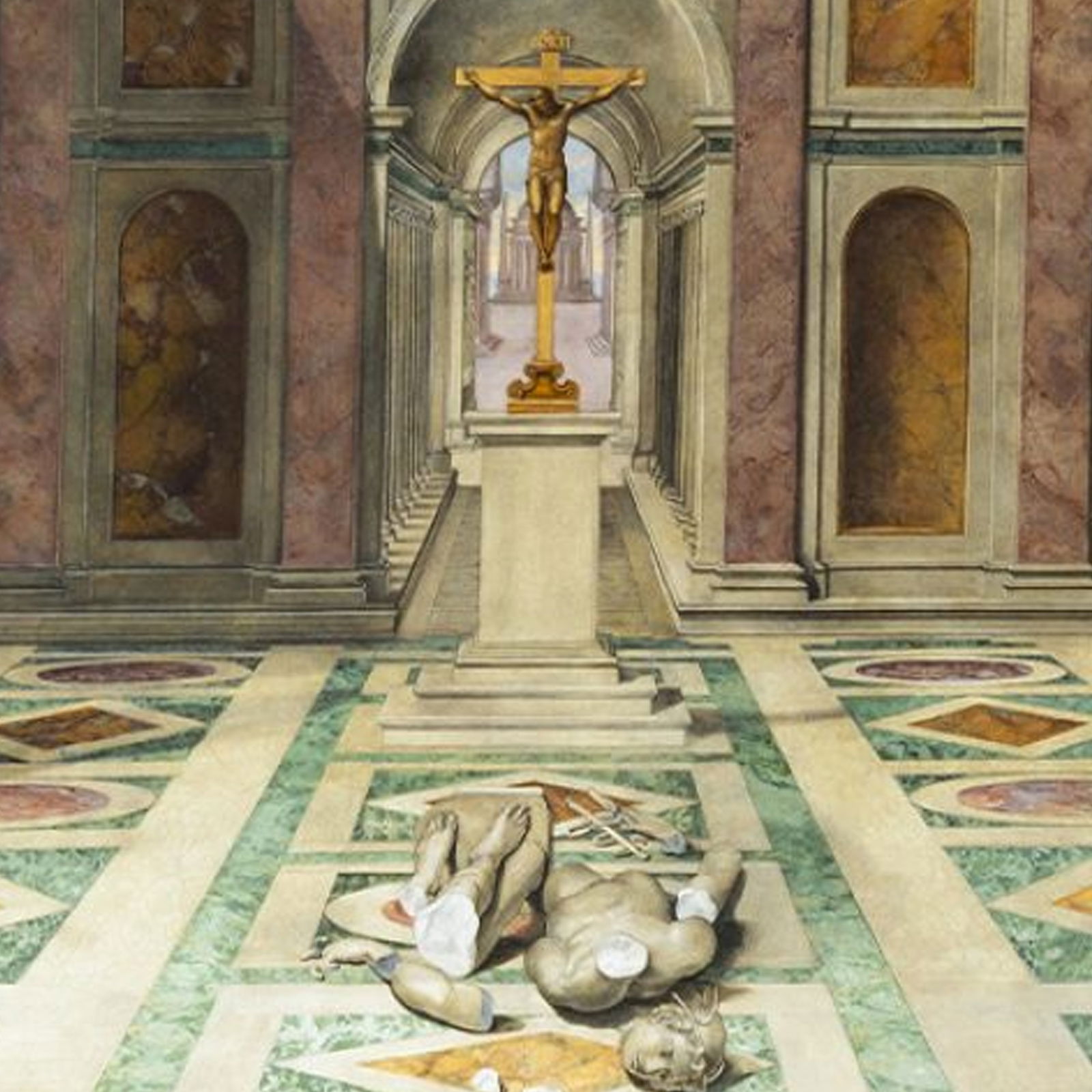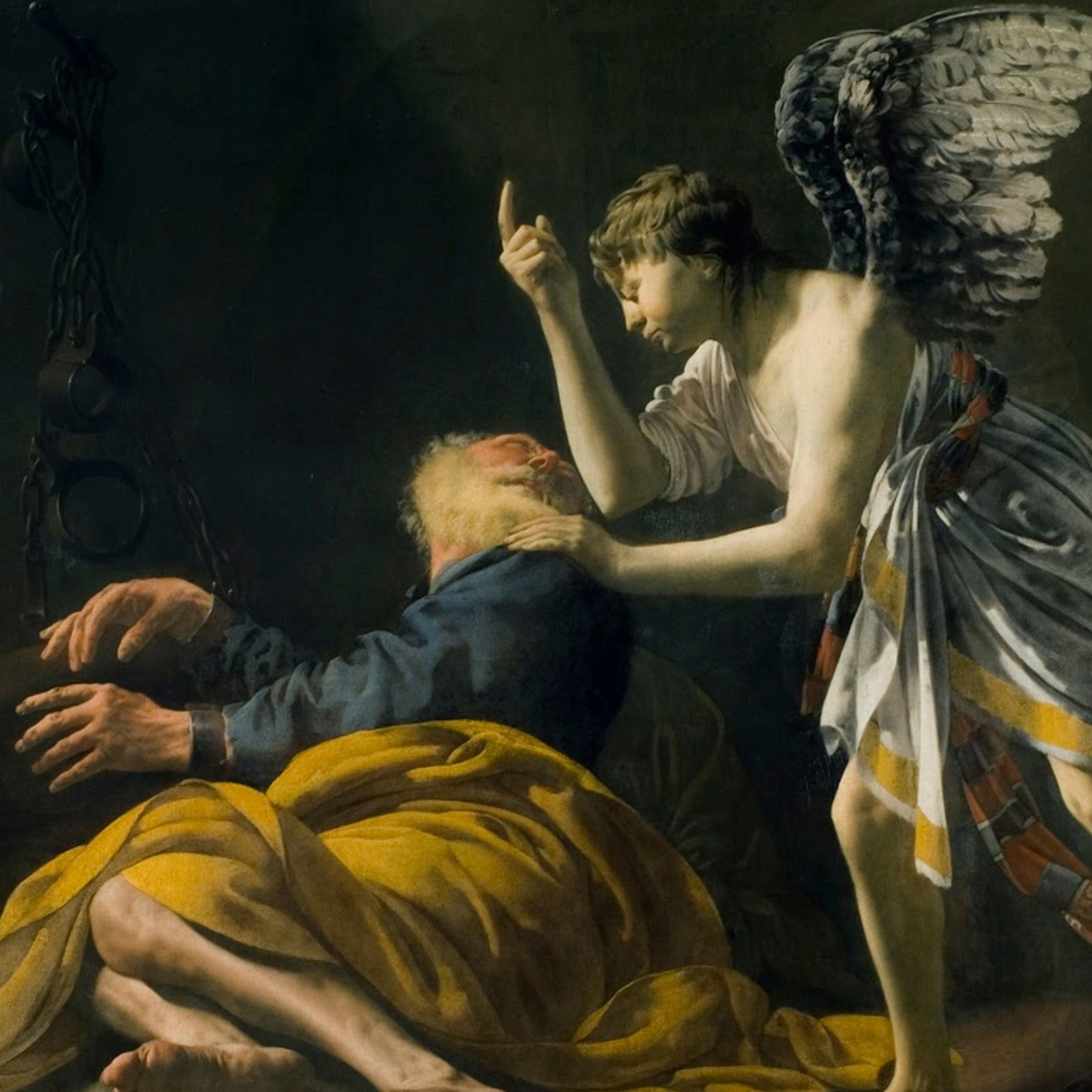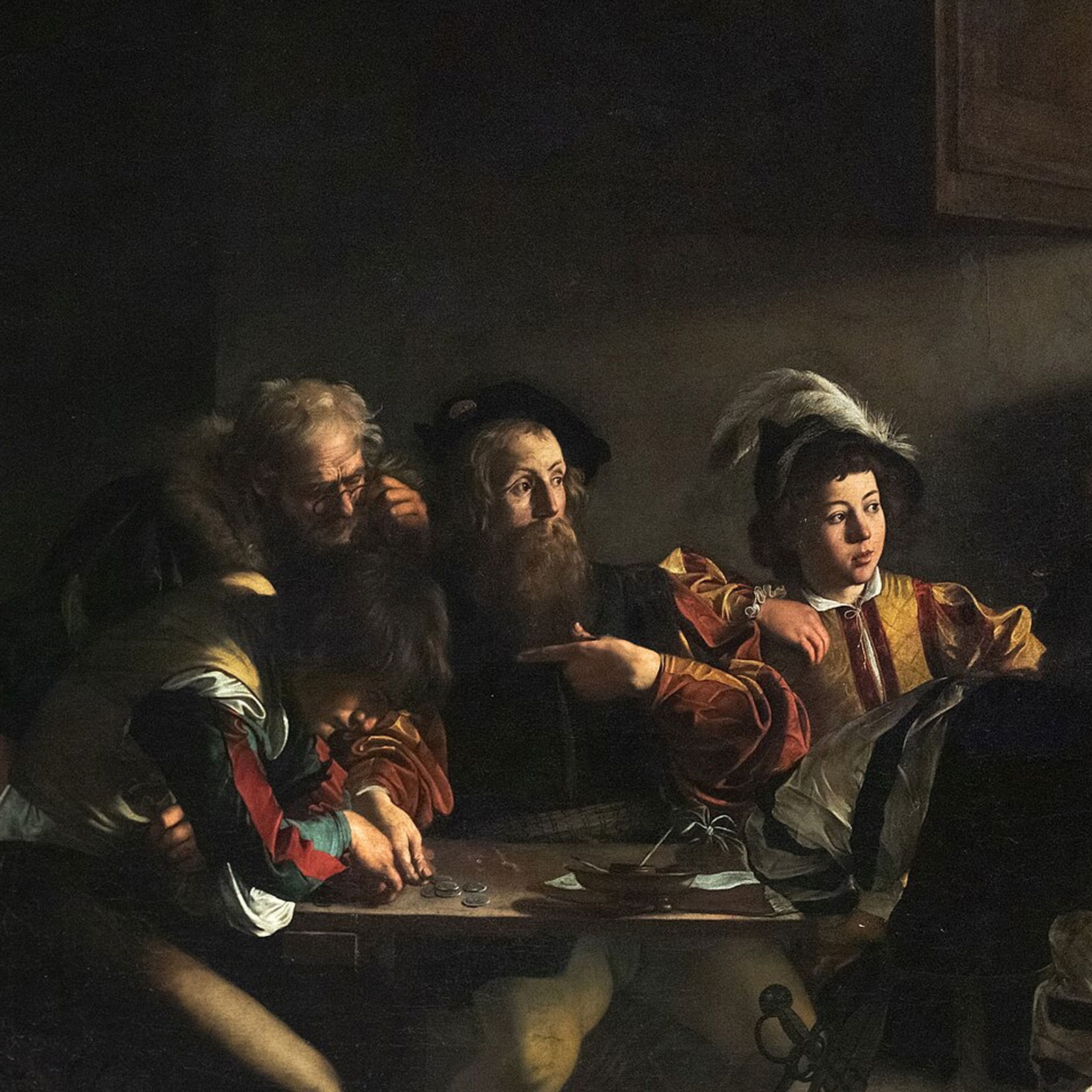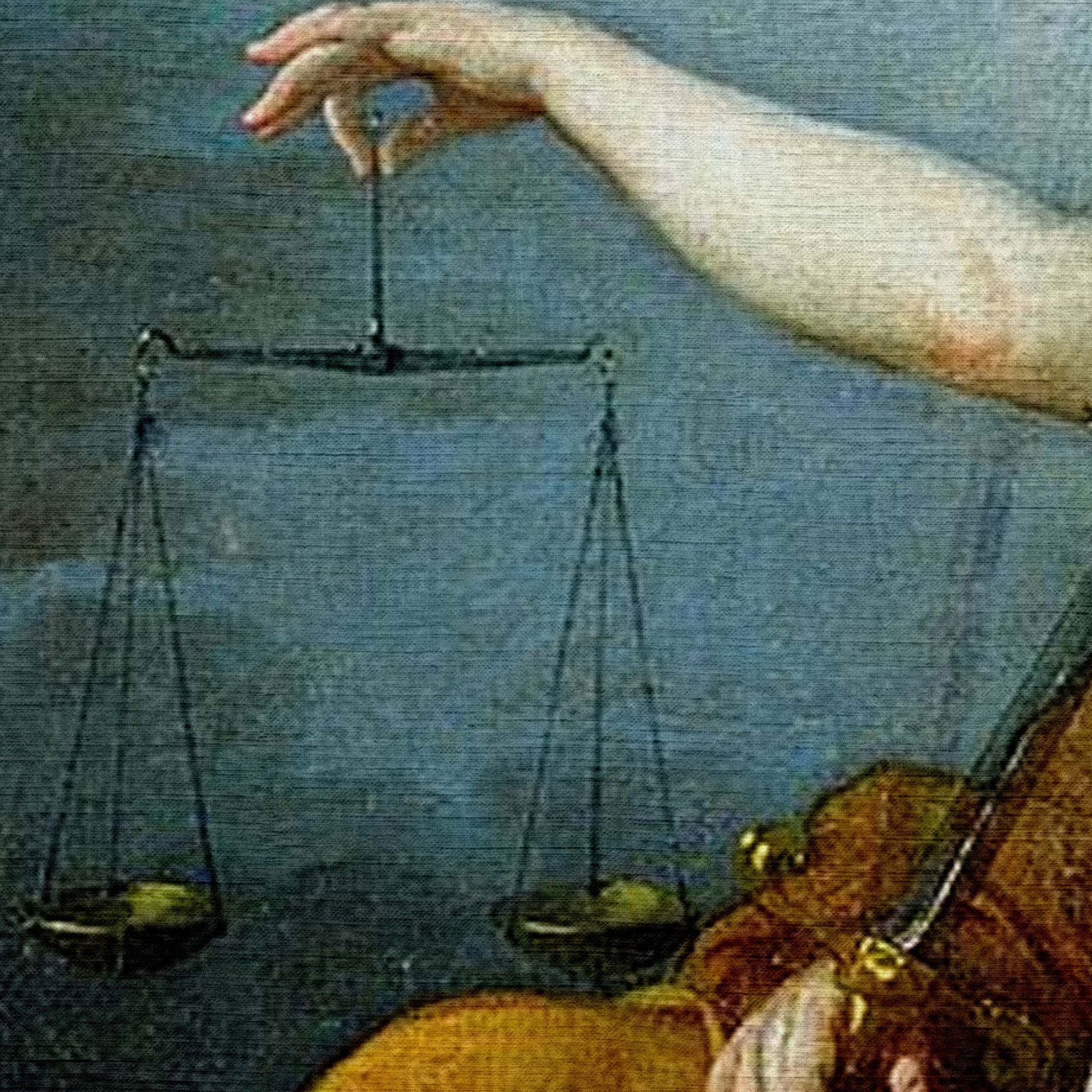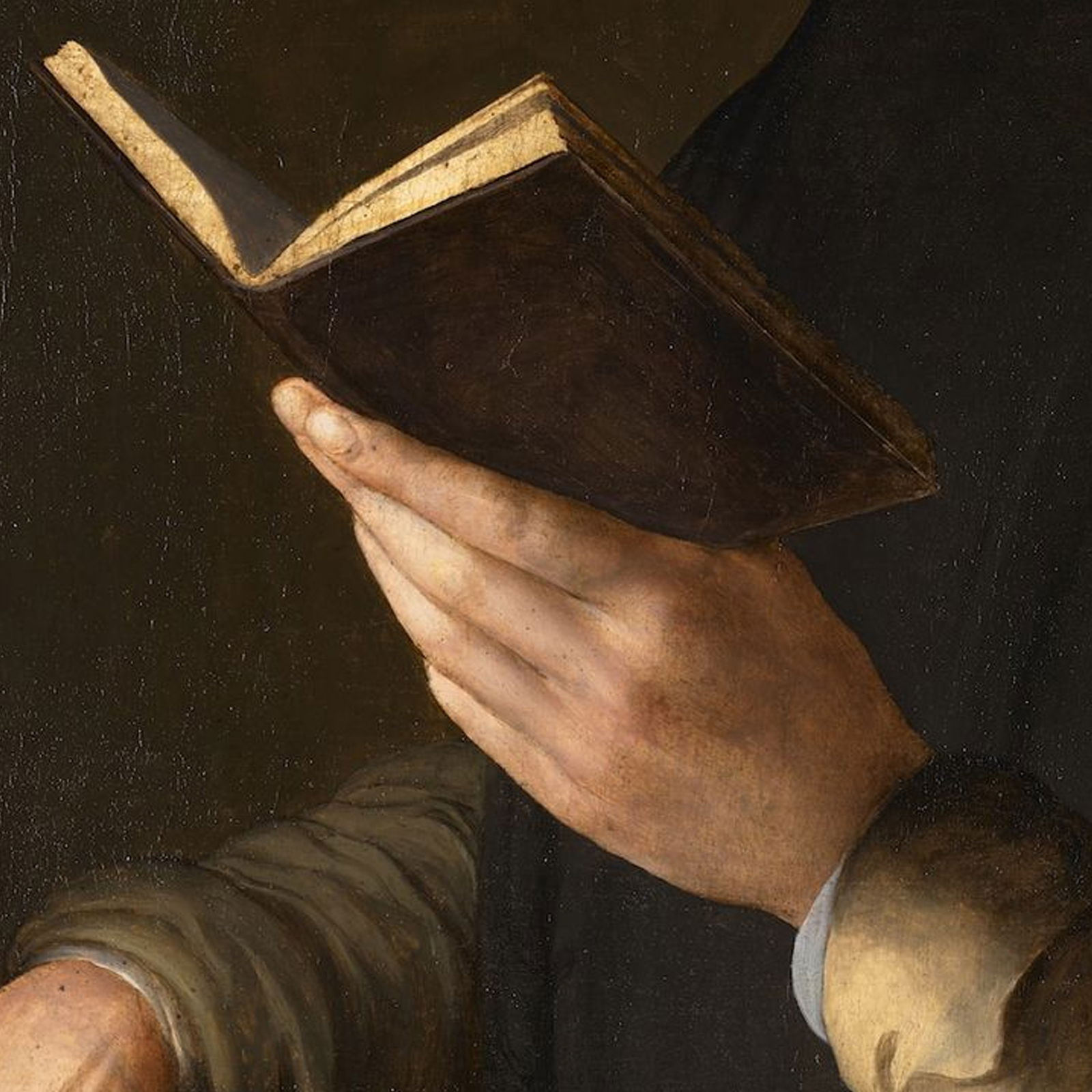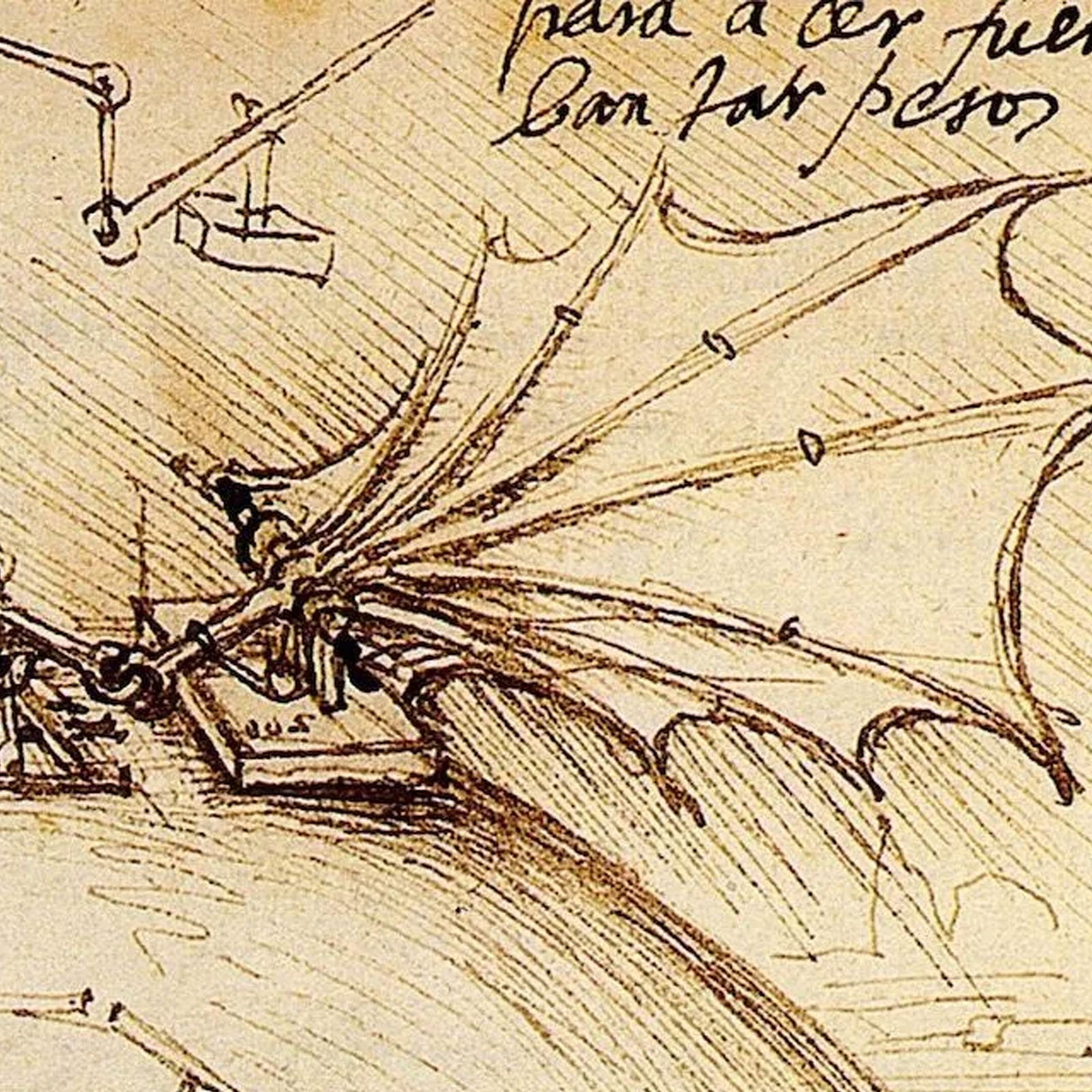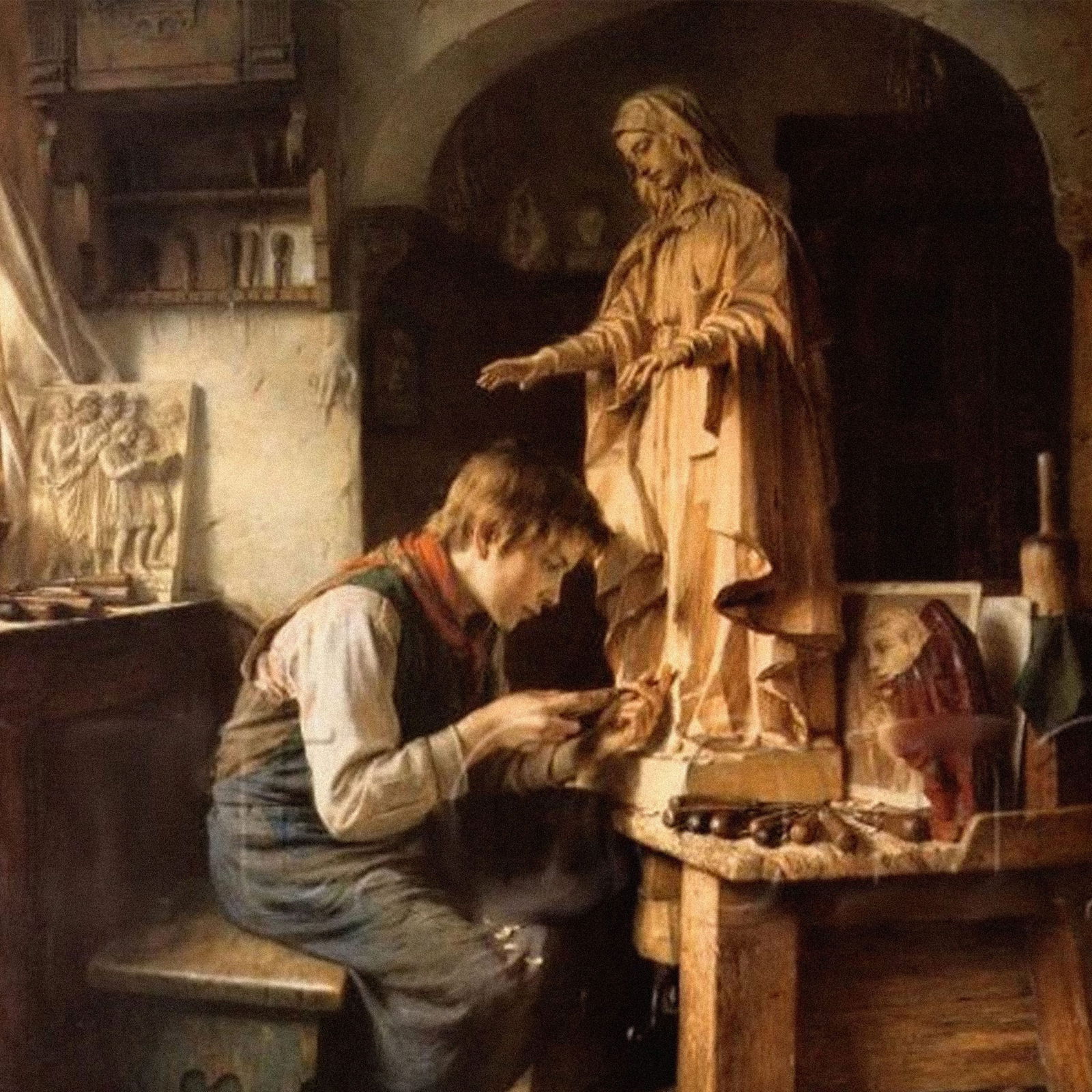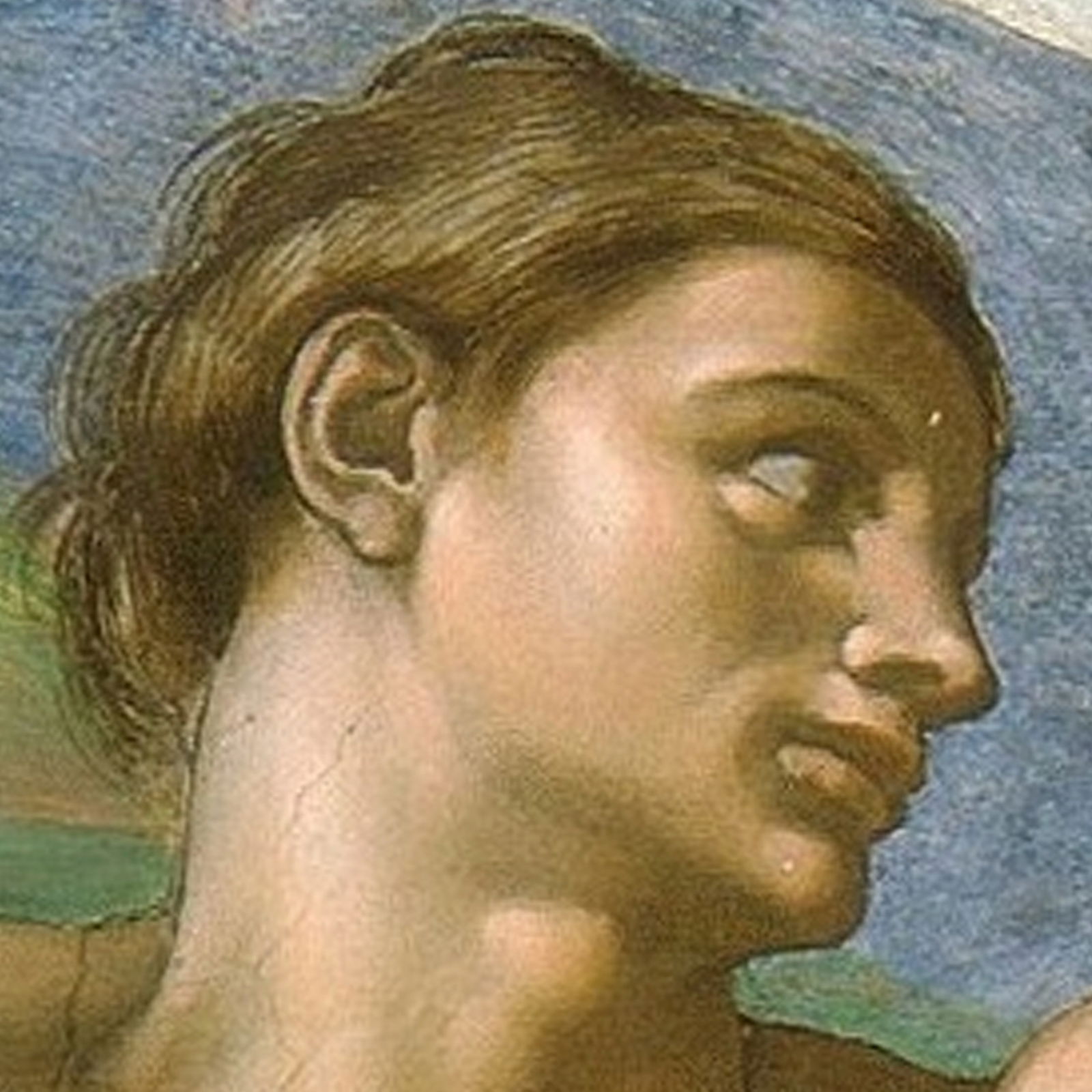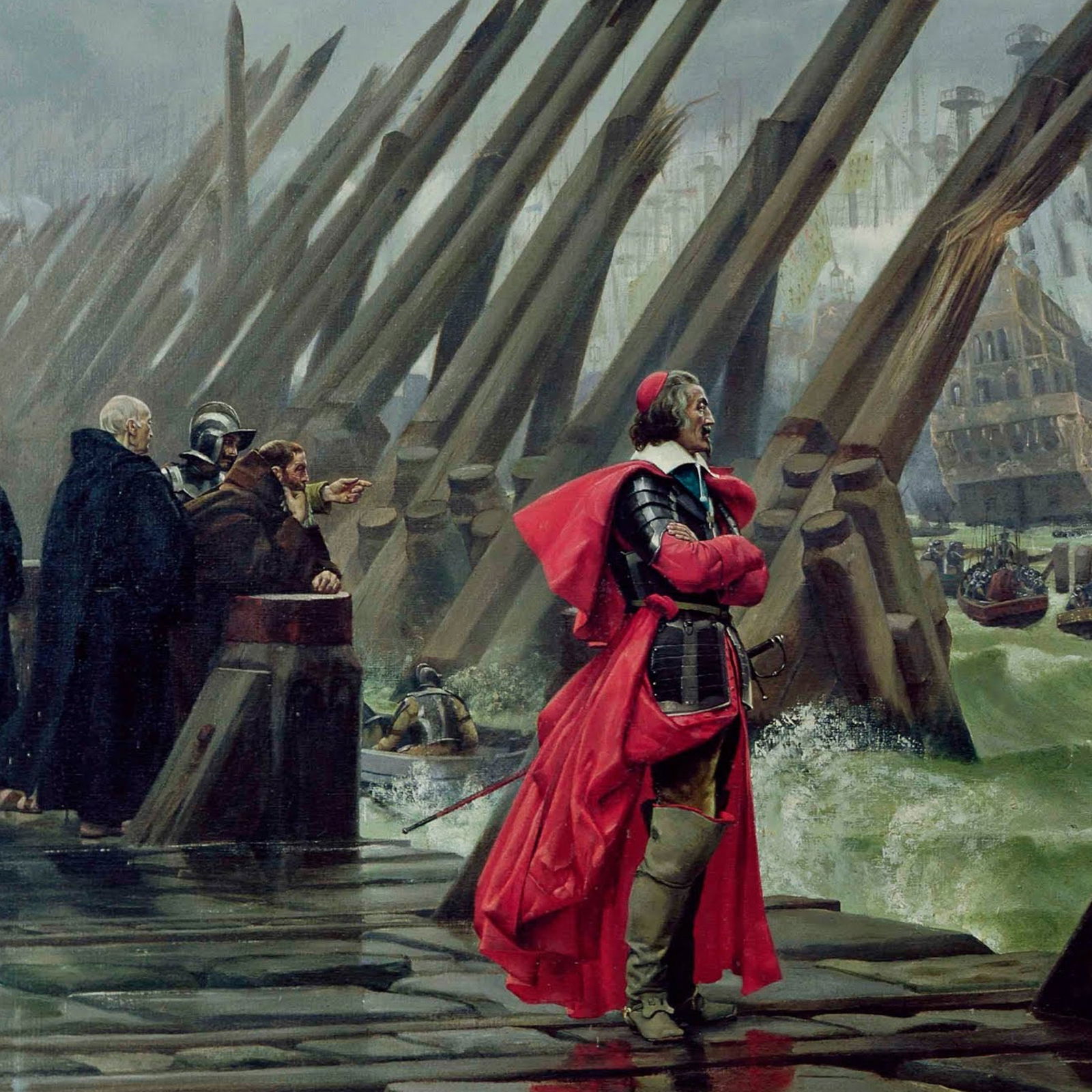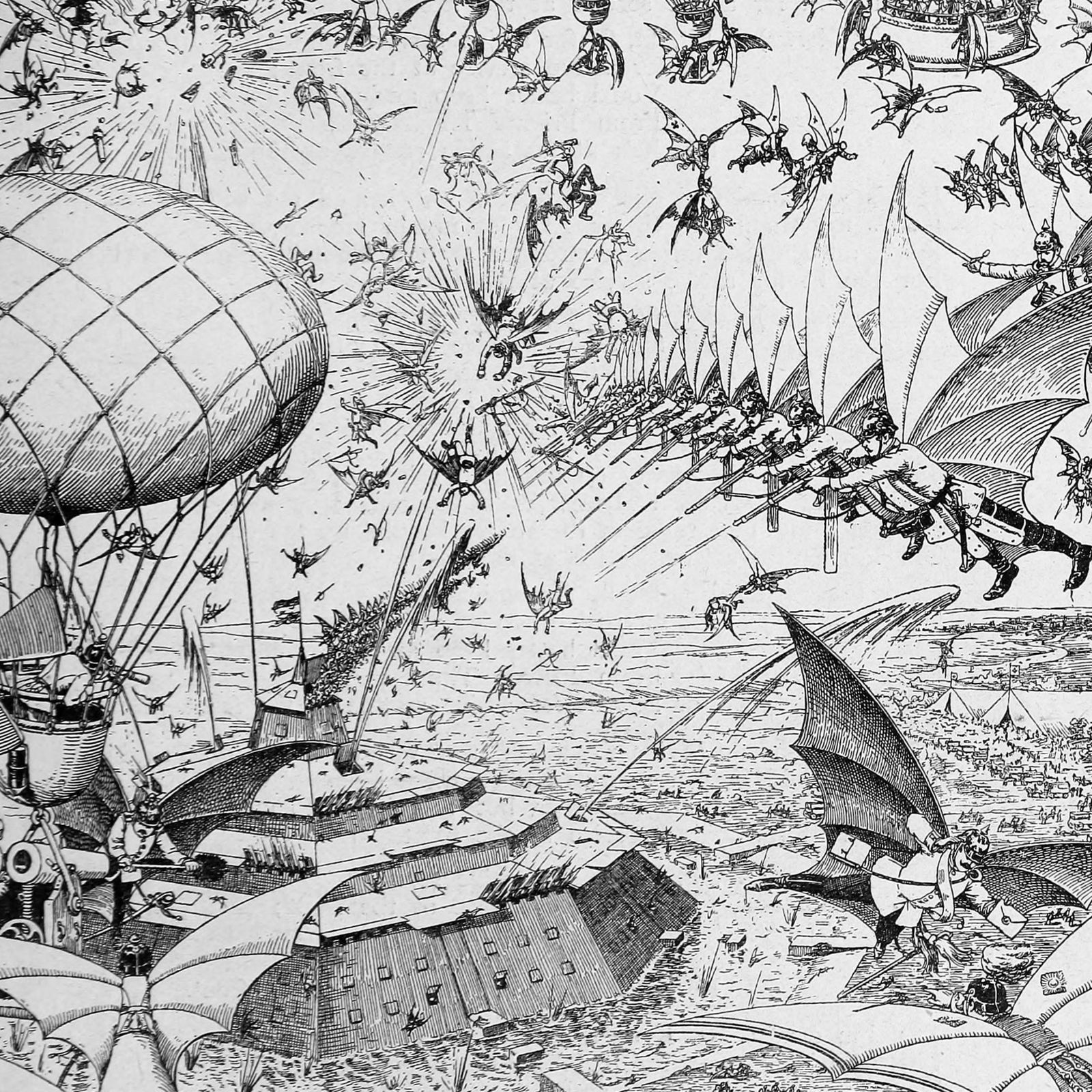Philosophy Episodes
Nature's Cheat Codes? On the Course of Nature and its Laws I Prof. Jo…
Prof. John Brungardt explores the concept of laws of nature as partial transcriptions of the natures of physical substances, emphasizing the interplay between philosophical tradition, scientific discovery, and metaphysical causality.
Aquinas on Nature and the Natural: Form and the Scale of 'Esse' – Fr.…
Fr. Raymund Snyder explores Thomas Aquinas’s metaphysics of nature, form, and the scale of being, emphasizing the integration of Aristotelian and Neoplatonic traditions and the unique Christian vision of creation, essence, and intellect.
Aquinas on Nature and the Natural: Endoxa and Principles I Fr. Raymun…
Fr. Raymund Snyder explores the foundations of nature, natural philosophy, and metaphysics through a Thomistic lens, with special attention to Aristotelian principles, correlative pairs, and the interplay of form, substance, ...
Usefulness and Elegance in Mathematics I Prof. Meraiah Martinez
Prof. Meraiah Martinez explores the beauty and usefulness of mathematics, emphasizing the delight mathematicians find in elegant proofs, structured abstractions, and the interplay between pure and applied mathematics across v...
Nicolaus Steno and the Intersection of Disciplines in the Scientific …
Prof. Nuno Castel-Branco examines Nicolaus Steno’s innovative use of focused interdisciplinarity during the Scientific Revolution, tracing Steno’s groundbreaking shift from anatomy to geology and theology by integrating mathe...
Dividing and Relating the Sciences in Aquinas I Fr. Philip-Neri Reese…
Fr. Philip-Neri Reese analyzes Aquinas’s method for dividing and relating the sciences, clarifying the distinction between speculative and practical sciences, the role of material and formal causes, and the concept of mixed o...
Aquinas and the Basic Principles of the Material World I Prof. Michae…
Prof. Michael Gorman explores Aquinas’s foundational philosophy of the material world, detailing key concepts such as the four causes, hylomorphism, act and potency, matter and form, and the distinction between substantial an...
How Many Friends Should I Have? I Fr. Aquinas Guilbeau, O.P.
Fr. Aquinas Guilbeau explores the nature, value, and varieties of friendship in Christian and philosophical tradition, highlighting the importance of cultivating friendships of pleasure, utility, and virtue for a fulfilling h...
What is Wisdom and Why Do We Need It? I Fr. Irenaeus Dunlevy, O.P.
In this lecture, Fr. Irenaeus Dunlevy explains how wisdom—philosophical, theological, and mystical—transcends mere technical knowledge and, therefore, is able to orient man's action toward divine truth and human flourishing. ...
The Happiness of Human Limitations I Fr. Gregory Pine, O.P.
In this lecture, Fr. Gregory Pine explores how true happiness is discovered by accepting and embracing the limits and commitments inherent to human life, rather than escaping them. This lecture was given on February 15th, 202...
12 (Thomistic) Rules for Managing Appearances and Making Yourself Mis…
Sr. Anna Wray, redefines leadership as the practice of initiating genuine collaboration by rational wishing, deliberation, and action, exposing twelve common pitfalls that distort true agency and offering practical guidance f...
Why Becoming More Philosophical is a Good Idea I Prof. Michael Gorman
Prof. Michael Gorman demonstrates why becoming more philosophical is essential for intellectual autonomy and deeper understanding, emphasizing the importance of fundamental questioning, sustained attention, and personal intel...
Technology In Our Relationship With God I Fr. Anselm Ramelow, O.P.
Fr. Anselm Ramelow examines how technology shapes and reflects our relationship with God, cautioning against both idolizing technology and seeking salvation through it, while affirming its proper role as an instrument serving...
Insight, Idolatry, and AI I Prof. Jordan Wales
Prof. Jordan Wales examines how AI-aided decision making and bias in fields like medicine and criminal justice risk reducing human engagement to idolatrous control, urging that technology must serve authentic love and respons...
Predictive AI, Manipulation, and Human Freedom According to Aquinas I…
Fr. Anselm Ramelow explores the tension between predictive artificial intelligence and human freedom, drawing on St. Thomas Aquinas to argue that while AI and social systems can influence and predict behavior to a certain degree, genuine free will and moral responsibility remain grounded in rationa…
AI and Interpersonal Relationships I Prof. Jordan Wales
Prof. Jordan Wales explores the ethical and spiritual implications of interpersonal relationships with artificial intelligence, emphasizing the dangers of mistaking AI’s simulated personhood for authentic human connection.
AI and Ethics I Fr. Anselm Ramelow, O.P.
Fr. Anselm Ramelow examines the ethical challenges of artificial intelligence, highlighting both its beneficial uses and its risks to human dignity, personal relationships, moral growth, and authenticity.
AI and Knowledge of the World I Prof. Jordan Wales
Prof. Jordan Wales explores how artificial intelligence and neural networks engage with meaning and knowledge, contrasting their statistical methods with the depth of human conceptual understanding rooted in philosophical and...
Mind, Matter, and Life: Can Machines be People, too? I Fr. Anselm Ram…
Fr. Anselm Ramelow examines whether machines can possess consciousness or personhood, arguing from philosophical and theological perspectives that artificial intelligence lacks the essential qualities of subjective experience...
AI and the Human Person I Prof. Jordan Wales
Prof. Jordan Wales critically examines the relationship between artificial intelligence and human personhood through the lens of Christian theology, exploring how AI challenges traditional notions of intelligence, consciousne...
The Neuroscience of Vice and Virtue I Dr. Paul LaPenna
Dr. Paul LaPenna delves into the neuroscience of vice and virtue, explaining how neuroplasticity, habit formation, and philosophical insights from figures like Aquinas inform our understanding of humility, magnanimity, pride, and vainglory in the development of moral character.
Origins of the Christian 'Just War' Tradition in Augustine's Anti-Man…
Fr. Andrew Hofer explores the origins of the Christian just war tradition through Augustine’s anti-Manichean writings, examining the theological debates around violence, authority, and moral law within early Christianity.
Drone Warfare and Just War Theory: Aquinas on the Virtuous Use of Vio…
Prof. Michael Krom analyzes the ethics of drone warfare through the lens of Aquinas’s just war tradition and virtue ethics, addressing moral principles of discrimination, proportionality, and the indispensability of human judgment in the use of violent technology.
Just War Theory I Prof. Joseph Capizzi
Prof. Joseph Capizzi presents the just war account within the Catholic tradition, arguing that the use of force in war can be a moral act of peacemaking grounded in pursuit of the common good, and emphasizing the importance of authority, intention, cause, proportionality, and distinction between gu…



